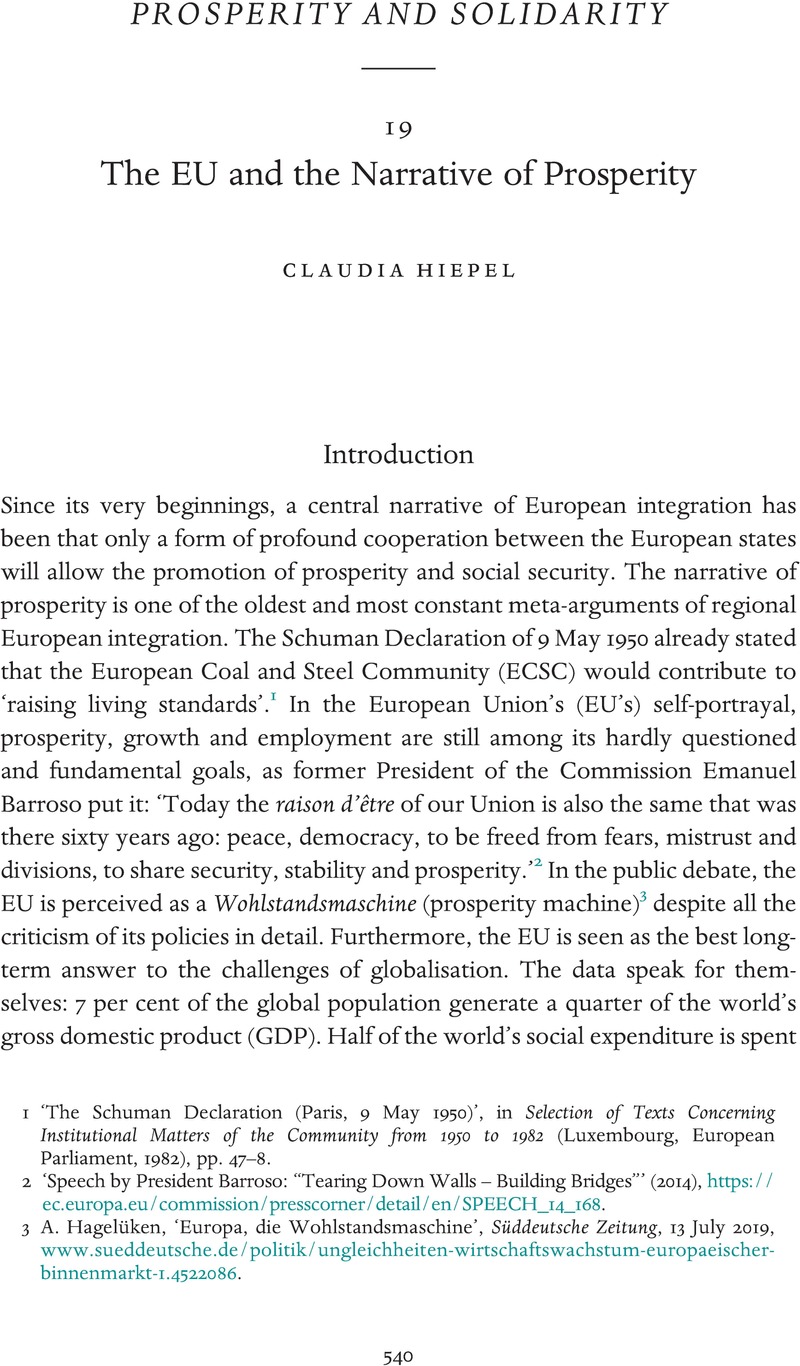Book contents
- The Cambridge History of the European Union
- The Cambridge History of the European Union
- The Cambridge History of the European Union
- Copyright page
- Contents
- Figures
- Tables
- Contributors to Volume II
- Acknowledgements
- Abbreviations
- Reflections on the History and Historiography of European Integration
- Part I Milestones: Treaties and Treaty Changes
- Part II Instruments of Integration
- Part III Narratives and Outcomes
- War and Peace
- Prosperity and Solidarity
- Democracy and Legitimacy
- Index
- References
Prosperity and Solidarity
from Part III - Narratives and Outcomes
Published online by Cambridge University Press: 12 October 2023
- The Cambridge History of the European Union
- The Cambridge History of the European Union
- The Cambridge History of the European Union
- Copyright page
- Contents
- Figures
- Tables
- Contributors to Volume II
- Acknowledgements
- Abbreviations
- Reflections on the History and Historiography of European Integration
- Part I Milestones: Treaties and Treaty Changes
- Part II Instruments of Integration
- Part III Narratives and Outcomes
- War and Peace
- Prosperity and Solidarity
- Democracy and Legitimacy
- Index
- References
Summary

- Type
- Chapter
- Information
- The Cambridge History of the European Union , pp. 540 - 651Publisher: Cambridge University PressPrint publication year: 2023



